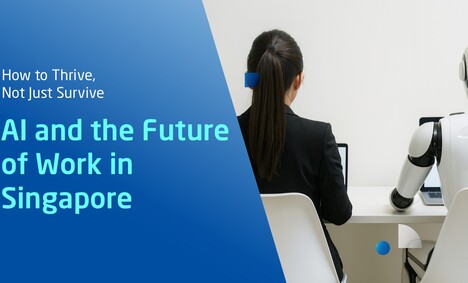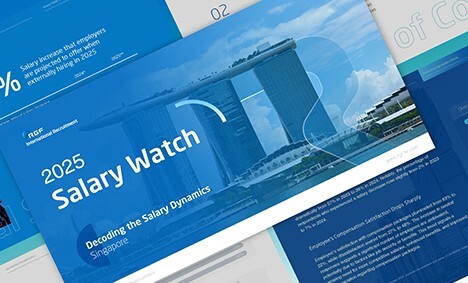You’ve got the motivation to improve yourself, and that’s half the battle won. You know you fall short in some areas of your profession and you want to change that, but where do you start?
Creating your own personal development plan is the first step to getting on the path to self-improvement. This is an action plan grounded in self-awareness and reflection to improve one’s self in any situation, be it in your job or in your personal life.
Where do I start?
“Develop your skillsets by setting goals and arrange them into a coherent plan with a specified timeline for each goal and your intended outcome,” advises Rita Cui, Head of RGF Professional Recruitment China, Shanghai. “Identify what your weaknesses are and find ways to improve them. You should also know your strengths and make sure you maintain them. This is also where recruitment consultants like us play a very important role as we are able to share with you specific skillsets which are necessary and in demand as you progress on in your career.”
Set your goals
Creating your own unique and personalised objectives in a single plan is a powerful strategy to succeed in anything you put your mind to. It gives you a clearer direction in life and is incredibly helpful in altering your habits. With goals, you’re basically inspiring yourself to become a better worker and the best version of yourself.
“Don’t limit yourself to just one goal at a time,” Ms Cui advises. “You can focus well on different goals at the same time in different aspects of your life. They can be of different time periods as well. For example, you could have a long-term goal (around five years) a medium-term goal (around one year) and a short-term goal (around three months or shorter) at the same time.”
To ensure you succeed in meeting your goals, they need to be SMART:
- S – Specific – Save some money vs Save $2000 by (date)
- M – Measurable – You have to know when you’ve achieved your goal. Using the above example, saving ‘some” money doesn’t give you an indication that you have reached any goal whereas you can measure easily when you have accumulated $2000 in savings.
- A – Achievable – Your goals need to be doable. If you are currently earning $3000 a month and this is your only source of income, the goal of saving $8000 in two months is not achievable.
- R – Realistic – If you earn $3000 a month and aim to save $5000 in 2 months, this is possible given your currently salary, but it is not very realistic as you will have existing expenditure commitments. Your likelihood of not meeting your goal is high.
- T – Time-bound – Set a date by which you will achieve your goal. Without a date, your goal is technically a wish not a goal.
These factors can make or break your personal development plan. Make sure that your goals are not too easy that you don’t gain anything from it, but not too hard that you eventually get discouraged and give up. Small progressive steps are the way to go.
Take action
It’s one thing to set goals, but it’s another to actually do them. To make the process easier, figure out what you need in order to achieve your goals. Be it learning-resources, equipment, social connections, with every goal there is always something material out there to help you achieve them.
Here are some examples of the available resources people use to achieve their goals in their careers.
- Professional courses – to acquire the knowledge needed for highly skilled jobs.
- Webinars – motivational resources and sources of inspiration.
- Certifications – it’s important to be able to prove that you’ve met a certain recognised standard.
- Co-curricular activities – developing your social and inter-personal skills outside of work can help you become a better employee and work better with your colleagues.
“Of course, what you use to achieve your goal depends on what your goal actually is, Ms Cui advises. “Everyone takes different routes in life, but what is important is that you end up at your destination.”
Regularly review your progress
Along the way, it is important to track your progress and evaluate how well you are doing. Getting a certificate or finishing a course doesn’t necessarily mean that you have achieved your goal. The most important part is to make use of what you learned or gained to better your performance in your career.
“Your goals may also change as your career develops,” Ms Cui warns. “For example, as technology develops and new tools become available, you may need to be conversant with these as part of your job. So, goals need to be reviewed regularly and adjusted accordingly so that you stay on track and remain relevant and employable.”
Are you looking for a Job?
RGF Professional Recruitment handles hiring for top multinational and can connect you with exciting opportunities in Asia.
Send your CV
In this article:







